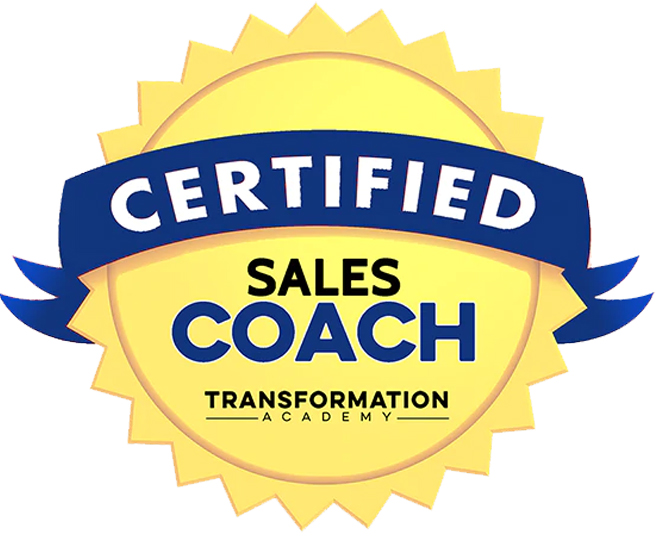In sales, ego is the enemy of greatness, because sales are all about helping the client and not about you. If you cannot put your ego aside, you will have a very difficult time becoming successful!
Having an ego in business and in sales is all about wanting to be perceived as the best. There is nothing bad about striving to be the best, but you should strive to do so by putting your client first and not focusing on how YOU will be recognized. Remember, there is a difference between being perceived and actually being the best! Perception is not always reality.
Of course, it’s important to be yourself and showcase your true personality and strengths in front of a client because you want to build a genuine relationship with them. But there is a fine line between striving to be your true self (personality) and coming across as self-centered.
Being attached to your ego in sales doesn’t necessarily mean that you want to outsell every other salesperson, or your competition, and it doesn’t mean that you want to hustle every hour of every day to get that new client – because that is not always driven by ego, that can just be a strong drive and hard work. But, when driven by your ego you are unable to listen, to learn, to act or to adapt in the sales process because of your pride.
Wanting new clients and doing your best to crush your goals and to become the best you can be, is amazing, but only if it doesn’t come at the expense of everyone else, especially your clients. The ego-centric way of getting there is to put yourself up on a pedestal and ignore everyone else and their opinions, and that is not how you want to conduct business.
Understanding that the ego it’s not about sales, it is about you. Having your ego stroked makes you and you alone feel smart and important. It’s the ultimate form of personal gratification. When you let your ego drive you, every question asked, every point addressed, and every pitch delivered is one with one end goal: to make the sale so you can pat yourself on the back and make yourself feel good.
By understanding your own ego, there is another aspect to consider: Each one of us, as well as your potential clients all have an ego. Everything I just said about your ego applies to their ego too. What happens when you go to buy something, and that salesperson talks and acts like they want to make you feel that you are only half as smart as they are, or you are only half as competent as they are.? Does it make you want to continue to do business with them? Or does it make you want to walk away as fast as you can, doing business somewhere else or with someone else?
This type of situation can only happen if a salesperson forgets why they are there and what their job really is: to serve clients and help them find whatever they came to obtain or learn.
Even the most fabulous salespeople in the world know that they keep their egos in check when they sell. By understanding and observing this you can also learn how to check your ego at the door when you sell.
The easiest way of realizing that your ego is driving you is when you are meeting with your clients, or potential clients, is to pay attention to the way you react when you hear the word NO regarding your sales offers. Bottom line is, it’s not healthy to take every NO personally. A friend, a family member, or a potential client may say no to what you’re offering at that moment in time, for their own personal reasons that may or may not have anything to do with you. That doesn’t mean they are saying no to YOU as a person.
People who have been told no to a sales offer and take it personally, even if they are the ones who made that product or create that service, show signs of personal insecurities and uncertainty in their own products. They usually take it as a personal shot at their selling abilities, and even get to the point where they assume that their potential client may think really poorly of them, but that is not typically the case.
A healthy response to a NO would be to own it and to learn from it. It would be helpful to consider what made them say NO in the first place. Is there something you can do to improve that sales pitch to get them to say yes? The bottom line is this: Don’t take every “no” personally and don’t get discouraged when you don’t close every single prospect. Every “no” you get is another opportunity to learn and to grow.
Another barrier to a successful sale and business relations is getting defensive when selling.
Here’s an example: You’re on a Zoom call with a potential client and you just gave a great pitch. It’s the same pitch you’ve delivered hundreds of times before and have gotten the results you were looking for. Based on your previous experiences, you’re just waiting for them to say YES and, suddenly, instead of Yes, they give you a big fat NO, or “thank you for the presentation, but I’m really not interested”. When you ask them the why behind their answer, they say that the pitch didn’t quite resonate with them, they found you annoying and too persistent. That feedback can be a big shot to the ego. What’s your natural reaction? Is it time to defend yourself? Is it time to protect your pitch, your credibility and competence? NO.
Taking the self-centered approach and protecting your own ego at all costs will only burn that bridge forever. Confronting a potential client and having a conflict with the person because they rejected your offer, will cut all the chances for you to ever get that sale in the future. When you are defensive, you burn bridges. Remember that what you consider to be the best sales pitch does not resonate with 100% of people, and it would be good to be aware of that possibility and check your ego at the door from the start. Just because your pitch didn’t resonate, or the prospect isn’t ready to buy doesn’t always mean you did something wrong and they’re taking a personal shot at you by saying no. A strategy can be to prepare different versions of pitches and different comebacks for any potential response because the key is to learn from the rejections and not immediately assume it’s just the prospect not “getting it” during your pitch.
Another thing to avoid? Stop comparing yourself to everyone else.
Your ego wants you to see each person you interact with as someone who could potentially be better than you. Better than you at sales. Better than you in the coaching industry. Better than you at anything. And, if someone is better than you at something, your first instinct may be to dislike them. You could feel better if they were to get worse at sales, coaching, parenting, baking— and whatever else you perceive they are doing well enough to be better than you, because if they stumble, all of a sudden there’s one less person better than you. And if you can climb the ladder of talent, surely the clients you’re selling to will see that.
That’s not true! If you only see others as competition or as stepping stones in the quest to boost your own ego, you’ll wind up leaving a negative energy trail and a bad impression in the eyes of most people you interact with. Please know that you don’t need to compare yourself to the people around you and you don’t need to become like someone else just because their numbers are looking better than yours at the moment. There is enough space for everybody and besides, in sales, authenticity is key. But, if you want to grow, you can instead focus on how you can learn from them, from your “competition” and even help them grow as well. If someone else has been crushing it lately, talk to them about what’s been working so well. Just be sure that your motives are pure. Don’t approach the conversation as a way to “unlock their secrets” so you can steal them, don’t use people like that to boost your own ego, instead, approach them ready to learn. And be prepared to offer them something in exchange, so you can both grow together.
Remember, there are people who are not going to like you no matter what you do or don’t do. If you let every single negative review and response from others bring you down, your sales/business career might not be as long and successful as you’re hoping. And If you’re constantly looking over your shoulder at how the person next to you is doing, you’ll miss great opportunities that could be right in front of you.
So, don’t let your ego lead the way, and every time you get knocked down or you hear a NO, see it as an opportunity to get better prepared for the next round.
Author: Sanda Kruger
Sanda is an entrepreneur, real estate investor, health coach and professional dancer. Sanda is an entrepreneur with more than 20-year experience in business development and project management in the fields of life, health and fitness coaching. She is also a real estate investor and a banker, who learned outstanding adapted business strategies, sales and marketing techniques, communication, and goal setting skills, hands-on, through life and work experiences. She is a certified fitness professional and is the creator of two original fitness programs, called BellyCore® Fitness and AquaCor®.








